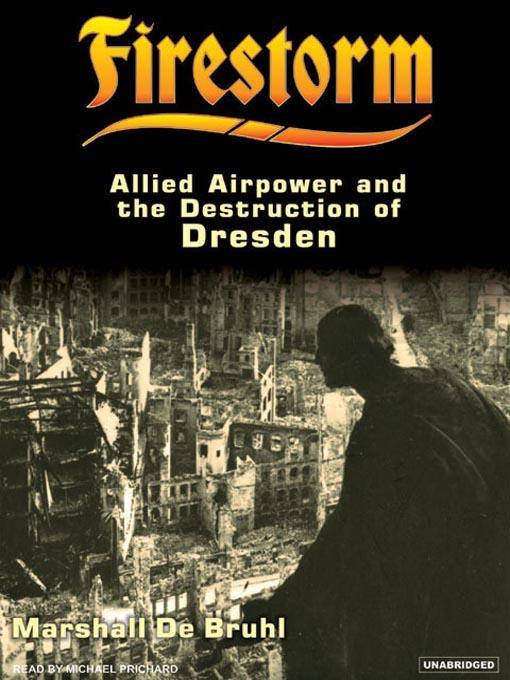
Firestorm
Allied Airpower and the Destruction of Dresden
فرمت کتاب
audiobook
تاریخ انتشار
2007
نویسنده
Michael Prichardناشر
Tantor Media, Inc.شابک
9781400173341
کتاب های مرتبط
- اطلاعات
- نقد و بررسی
- دیدگاه کاربران
نقد و بررسی

For hundreds of years Dresden, Germany, was a bastion of civilization and culture. Because it was also the center of an extensive railway system and weapons-production facilities, Allied bombers burned the city near the end of WWII, causing a firestorm of destruction and controversy. Michael Prichard's pleasant and resonant voice leads listeners through a well-researched documentary of flight, politics, and technology. He sometimes uses deft pauses to punctuate the quotes, and at other times a theatrical portrayal of the speaker. Prichard handles the abundant German with ease and the sadness of death with sobering respect. While the book on paper might be dull, Prichard's touch brings a welcome luster. J.A.H. (c) AudioFile 2007, Portland, Maine

October 9, 2006
De Bruhl puts his experience as a book editor to good use in this narrative of the still-controversial bombing of Dresden in 1945. Making comprehensive, sophisticated use of archival records and published sources, De Bruhl reminds readers that although Dresden's museums, churches and porcelain factories made it one of Germany's loveliest cities, there was still a war on when Allied bombers targeted the manufacturing and communications center for the Nazi war machine. Recognizing what he calls "the fatal escalation" of the air war against German civilians, De Bruhl also demonstrates the time, effort and blood it cost to establish air superiority over Germany. He establishes the determination of the Third Reich's leaders to continue the war at all costs—a demand the German people accepted. He also examines the often-overlooked V-Weapons campaign mounted against Britain in June 1944, which silenced those Britons who questioned mass bombing of civilians. Certainly neither the British nor the American air forces had any compunction at mounting the raid De Bruhl describes as "theory put into flawless practice." When the last bombers left, Dresden was no longer a major producer of armaments. In a war begun by Germany, that was—and is—the bottom line.

























دیدگاه کاربران